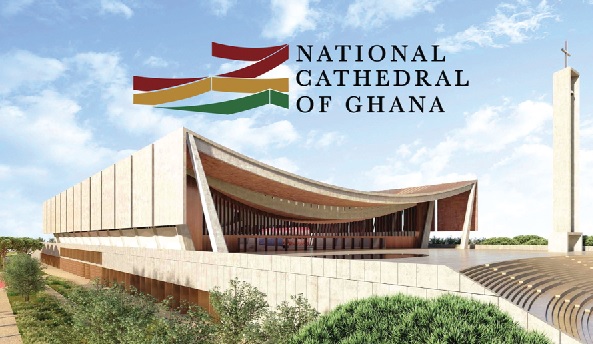
Election 2024: Can religion be harnessed for national development? Asks Professor Jeffrey Haynes
The leading presidential candidates are keen to stress the importance of Ghana’s churches for the country’s development.
If he is elected president, the New Patriotic Party’s Dr Mahamudu Bawumia has pledged to ‘incentivise churches’ in recognition of their contribution to the development of the country, justifying his pledge by reference to post-independence contributions the churches have made to Ghana’s development.
He stated during a May meeting with clergy, as part of his Bono Regional tour: ‘If you look at the work the church has done, we should be paying them, rather than them paying us. Unless you don't understand the work the church has done.’
Mr Mahama, the National Democratic Congress’s flag bearer, recently stated that ‘the clergy and churches have a crucial role to play in ensuring the political and economic health of the country, particularly as the nation prepares for the 2024 general elections’.
To support his key policy initiative, the ‘24-hour economy’, Mr Mahama wants to see churches heavily involved in economic reconstruction.
The idea is that churches should proactively impact on all sectors of the economy, both public and private, partnering ‘with the private sector and government to set up businesses to reduce the youth unemployment rate’, which Mr Mahama labelled a ‘ticking time bomb’.
Mr Mahama also stated that ‘The Church has a dual responsibility both in terms of meeting the spiritual and material needs of its congregation. The Church has a role to play in making sure that the economy is run well so that the citizenry and the congregation can have better lives.’
Secularism
Ghana’s 1992 Constitution is a secular composition, whereby all religions are treated equally: none are favoured over others. It resembles India’s constitution in this regard, which similarly states that India has no religious preference, that is, without favouring any one religion over others.
This means that in both Ghana (70 per cent Christian) and India (80 per cent Hindu) the majority religion does not take precedence over others, including the main minority religion in each country: Islam (Ghana, 20%; India, 15%).
Why does this matter in 2024, an election year? Neither Mr Mahama nor Dr Bawumia explicitly mentioned Ghana’s minority religions or religious ‘nones’, which collectively comprise 30 per cent of the population, some 11 million people.
Obviously, at election times, candidates will try to win as many votes as possible and over the last few electoral campaigns, it has been noticeable that presidential candidates in particular court certain religious leaders in order to win their confidence and encourage the latter to urge their followers to vote for them and not for any of their rivals.
On the other hand, it is important to be clear that it is not only the churches that have contributed to Ghana’s development, as religious minorities and religious ‘nones’ have also done their bit to take the nation forward.
Role of churches
Are Mr Mahama and Dr Bawumia’s comments about the role of the churches in development helpful in taking Ghana forward?
Do they indicate a favouring of Christianity over other religions, which constitutionally is not allowed?
It may be that Ghana is ready for a major, and permanent, political and economic role for churches, including in development and economic refurbishment.
It may also be the case that significantly strengthening the involvement of the Church in Ghana’s development is a good idea, as it might significantly advance development, complementing the efforts of the state.
Before Ghana reaches that point, however, Ghanaians should have a conversation about what they want to see regarding the Church’s developmental role.
In addition, a national conversation should include an assessment of the role that religion should play in taking Ghana forward.
Given that religious organisations are collectively the most important civil society actors in Ghana, with the greatest number of followers, many times that of political parties, their role in development could be profound, if their talents are harnessed and used productively.
Seeking votes
As Ghana approaches the 2024 elections, candidates for political office are, of course, perfectly entitled to seek votes from all parts of society, including religious organisations and the followers of Ghana’s religions, both majority and minority.
But should this extend to pursuing a significant, maybe permanent developmental and economic role for one religion, with the potential to exclude others? If this is what Ghanaians want, then fine.
In my opinion, it is necessary to have a national debate about this issue before the elections, to learn what Ghanaians think about Dr Bawumia and Mr Mahama’s ideas. Post-elections, Ghana’s attention will be focused strongly on how to improve things, especially economically and developmentally.
It is clear that many Ghanaians feel aggrieved about the situation of the country nearly 70 years after independence, and to agree on the way forward so that religion can work as a crucial development and economic partner with the state is vital for the country’s future well-being.
NB: The writer is an Emeritus Professor of Politics, London Metropolitan University, UK
